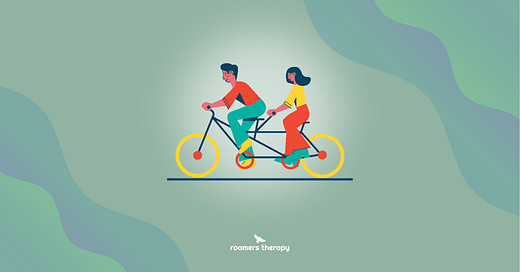How Does Nutrition and Physical Activity Impact Our Mental Health?
Having good nutrition has many positive effects on our wellbeing.
Dieting refers to our total caloric intake (what we eat and drink). It can also refer to the connection between our caloric intake and physical and mental health. Nutrition refers to a person's lifestyle. It also refers to nourishment in multiple domains of life (e.g., physical health, mental health, and emotional health). These are components that go into nutrition:
Healthy diet
Physical activity
Good sleep hygiene
Sustainability
How does good nutrition impact us?
Having good nutrition has many positive effects on our wellbeing. These benefits include:
Reduced risk of diseases
Increased energy
Happier and better moods
Better overall well-being
Stronger immune system
Improved cognitive ability
Consistency in sleep
Decrease in physical symptoms like fatigue and headaches
How Does Poor Nutrition Impact Us?
Many times, people share concerns that have a direct relationship with their nutrition. Some of these concerns include:
Heightened risk of diseases
Less energy, sluggishness, fatigue
Decreased mood, anxiety, irritability, and depression
Lower quality of life
Weaker immune system
Weight fluctuation
Decreased cognitive ability
Disturbances in sleep
Increase in physical symptoms like fatigue, headaches
Keep this in mind:
We would never drive a car without gas. Our bodies are the same way, they need a form of consistent energy intake.
Foods That Positively Impact Mood and Mental Health
Research shows that what we eat has a direct correlation with our mood because 95% of serotonin is created in the gut. Here are some foods that positively impact our mental health:
Fatty fish (e.g., salmon and albacore tuna)
Dark chocolate
Fermented food (e.g., kimchi, yogurt, kefir, kombucha, and sauerkraut)
Bananas
Oats
Berries
Nuts and seeds
Coffee
Beens and lentils
Benefits of Physical Activity
Like our diet, physical activity can have a positive impact on our mental and physical health and our wellbeing. These benefits include:
Reducing risk of disease and illness
Managing weight
Improving cognitive ability
Strengthening body
Improving sleep quality
Bettering heart health
Decreasing anxious and depressive symptoms
Relieving stress
Providing structure and routine
How to Become More Active
Physical activity does not have to be rigorous. It just needs to be consistent. Everyone starts at different places, so make sure to find something that works for you. Here are some tips for implementing more physical activity in your week:
Walking outside
Doing house hold chores (like cleaning)
Practicing yoga
Dancing
Jumping rope
Biking outside
Making plans with friends
Who Can Help?
Therapists can help you develop a plan, goals, routines, and strategies to implement healthier ways to manage your nutrition, physical activity, and sleep. Therapists can also help you process and manage your emotions around food, physical activity, sleep, and body image. Certain medical providers provide education around nutrition, blood sugar management, and physical activity. In some cases medical providers can run tests for certain deficiencies and provide medication or vitamins. Eating specialists may be helpful in cases where disordered eating is developing.




